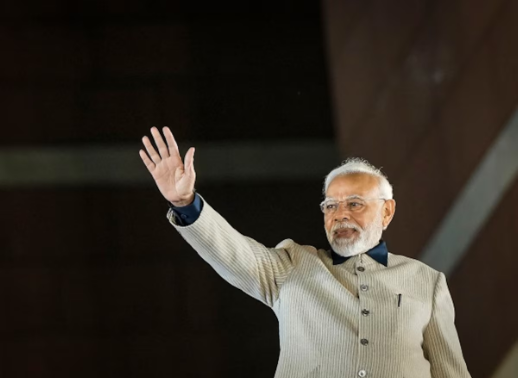
Over the course of ten years, Prime Minister Narendra Modi has significantly transformed India’s approach to foreign policy. His visionary strategy, characterized by pragmatism, assertiveness, and agility, has enabled India to navigate a rapidly changing global environment and expand its geopolitical footprint.
Under Modi, India adopted several novel strategies, focusing on enhancing bilateral partnerships with key powers, developing innovative frameworks for regional cooperation, and elevating its stature as a responsible actor committed to global peace, stability, and sustainable development.
Key components of Modi’s foreign policy include:
Neighborhood First: Prioritizing relationships with neighboring countries, particularly Bangladesh, Sri Lanka, Afghanistan, Bhutan, Maldives, and Nepal, to foster trust, promote security, and enhance economic connectivity.
Act East: Strengthening India’s engagements with Southeast Asia, Northeast Asia, and the Pacific region to counter China’s increasing presence and secure shared objectives in trade, investment, defense, climate action, and digital innovation.
Link West: Bolstering cooperation with Western democracies, primarily the US, UK, France, Germany, Canada, and EU member states, to deepen mutual understanding, address common challenges, and harness complementarities in technology, energy, education, healthcare, and agriculture.
Think South: Intensifying collaboration with Latin America, Africa, and Antarctica to advance joint priorities, such as fighting terrorism, combatting piracy, protecting oceans, and sharing best practices in areas like science, space, cybersecurity, and disaster risk reduction.
Engage Middle East: Enhancing dialogue and interaction with Saudi Arabia, Iran, Iraq, Israel, Turkey, Egypt, and other regional players to pursue shared goals in energy, diaspora engagement, and counterterrorism.
Moreover, Modi introduced multiple initiatives designed to project India’s soft power, reinforce its credentials as a reliable partner, and augment its comprehensive national strength. Some examples are:
Launching the International Solar Alliance (ISA) with French President Emmanuel Macron to mobilize investments in solar energy projects and combat climate change.
Establishing the Coalition for Disaster Resilient Infrastructure (CDRI) to build capacities in disaster preparedness and response and reduce vulnerabilities in vulnerable regions.
Developing the Indo-Pacific Oceans Initiative (IPOI) to safeguard marine ecosystems, improve maritime safety and security, and stimulate Blue Economy opportunities.
Throughout his tenure, Modi demonstrated remarkable adaptability in responding to emerging threats, such as cross-border terrorism, radical extremism, cyber intrusions, and disruptive technologies. He actively sought collaborations with diverse partners to mitigate risks, exchange knowledge, and devise effective solutions. Furthermore, he engaged with multilateral organizations, such as the UN, WTO, BRICS, QUAD, and SCO, to shape rules, norms, and standards aligned with India’s core interests.
In summary, Modi’s stewardship of India’s foreign policy over the past decade yielded substantial dividends, propelling India onto the world stage as a confident and capable leader. Building on this foundation, India continues to cultivate strategic partnerships, innovate regional architectures, and contribute to addressing global challenges, ensuring its rightful place in a multipolar world order.